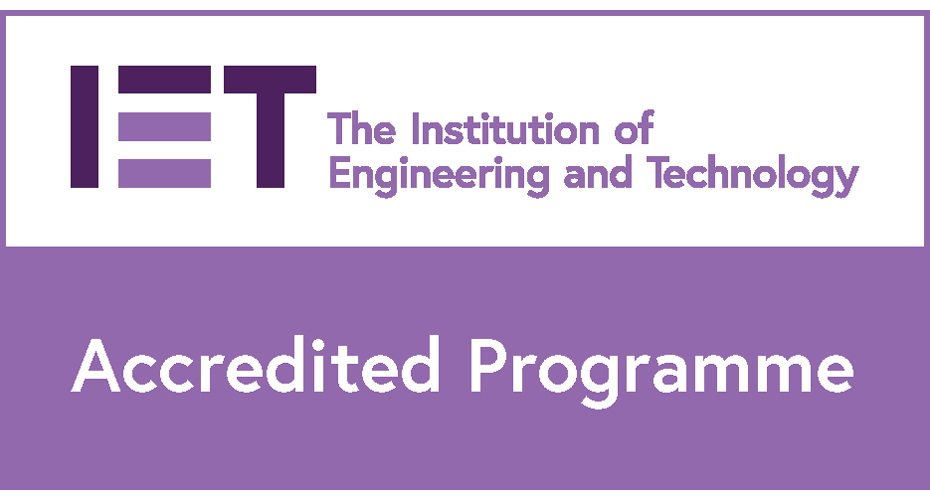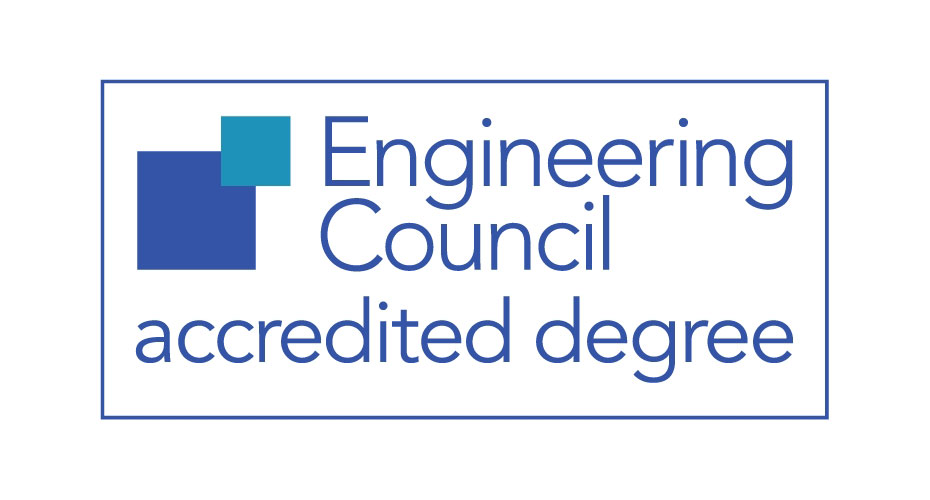| UCAS code | H705 |
|---|---|
| Duration | 3 years |
| Entry year | 2025 |
| Campus | Streatham Campus |
| Discipline | Engineering |
| Contact | Web: Enquire online |
| Typical offer | A level: AAB - ABB |
|---|---|
|
A-Level: BBB-BBC |
Overview
- BEng Engineering and Entrepreneurship is a pioneering programme designed to support innovators and entrepreneurs in the fields of mechanical and electronic engineering.
- Throughout the course, you’ll unleash your creativity and technical skills using Exeter’s ‘think-try-do' process of innovation, with the goal of launching your very own company.
- Your entrepreneurial mindset will flourish within our supportive environment as we encourage you to take risks, develop your ideas and learn from mistakes.
- We place a strong emphasis on real-world projects, equipping you with the teamwork, management and entrepreneurial skills required for a successful career.
- At the end of your third year, you will pitch your engineering idea to a panel of judges for the chance to advance your business with the University’s support.
![]()
Expertise in energy policy, marine renewables, biofuels, electrical power and networks, wind, photo-voltaic and thermal technologies
![]()
Chance to launch your own business in the UK
If you need a visa to work in the UK you’ll be pitching for an endorsement from the University and visa application costs to apply for a one year start up visa
![]()
Top 10 in the UK for Engineering
10th for General Engineering in The Complete University Guide 2025
![]()
£6.5million investment in our teaching labs, workshop spaces and equipment
Accreditations


Certain programmes are subject to accreditation and/ or review by professional and statutory regulatory bodies (PSRBs).
The Electronic Engineering BEng (Hons) Electronic Engineering with Year in Industry BEng (Hons) are accredited by the Institution of Engineering and Technology (IET) as:
- fully satisfying the educational base for an Incorporated Engineer (IEng).
- partially satisfying the educational base for a Chartered Engineer (CEng).
A programme of accredited further learning will be required to complete the educational base for CEng. See www.theiet.org for further information.
Accreditation is a mark of assurance that the degree meets the standards set by the Engineering Council in the UK Standard for Professional Engineering Competence (UK-SPEC).
Accreditation is awarded for a maximum of 5 years under each assessment exercise. The dates applicable to the current accreditation of this degree programme can be viewed on the Engineering Council list of accredited degrees: www.engc.org.uk/acad.
Entry requirements (typical offer)
| Qualification | Typical offer | Required subjects |
|---|---|---|
| A-Level | AAB - ABB | B in Mathematics, Pure Mathematics or Further Mathematics and B in another Science subject* |
| IB | 34/665-32/655 | HL5 in Mathematics (Analysis and approaches or Applications and interpretations) and HL5 in another Science subject. |
| BTEC | DDD - DDM | Applicants studying one of the following BTEC Extended Diplomas will be considered without a GCE AL science subject, GCE AL Maths is still required: Applied Science, Aeronautical Engineering, Building Services Engineering Construction and the Built Environment, Civil Engineering, Operations and Maintenance Engineering, Computer Engineering, Electrical/Electronic Engineering, Engineering, Manufacturing Engineering, Mechanical Engineering, Environmental Sustainability. |
| GCSE | 4 or C | Grade 4/C in GCSE English language |
| Access to HE | 30 L3 Credits at Distinction Grade and 15 L3 credits at Merit Grade - 24 L3 Credits at Distinction Grade and 21 L3 credits at Merit Grade. | 12 L3 Credits at Merit Grade in Mathematics and 12 L3 Credits at Merit Grade in an acceptable Science subject area. |
| T-Level | Distinction | T-level in Design and Development for Engineering & Manufacturing only, GCE A Level Maths is still required |
| Contextual Offer | A-Level: BBB-BBC |
Specific subject requirements must still be achieved where stated above. Find out more about contextual offers. |
| Other accepted qualifications | ||
| English language requirements |
International students need to show they have the required level of English language to study this course. The required test scores for this course fall under Profile B1. Please visit our English language requirements page to view the required test scores and equivalencies from your country. |
|
NB General Studies is not included in any offer.
Grades advertised on each programme webpage are the typical level at which our offers are made and provide information on any specific subjects an applicant will need to have studied in order to be considered for a place on the programme. However, if we receive a large number of applications for the programme we may not be able to make an offer to all those who are predicted to achieve/have achieved grades which are in line with our typical offer. For more information on how applications are assessed and when decisions are released, please see: After you apply
*GCE AL/AS science includes: Biology/Human Biology**; Chemistry; Computing; Design and Technology; Economics; Electronics; Environmental Science; Environmental Studies; Geography; Geology; Life and Health Sciences; Physical Education; Physics; Psychology; Science (applied); Statistics.
**If more than one of these is taken they would only count as one 'science' but could count as two A-levels towards our general requirements.
BTEC Extended Diploma
Applicants studying one of the following BTEC Extended Diplomas will be considered without a GCE AL science subject, GCE AL Maths is still required: Applied Science, Aeronautical Engineering, Building Services Engineering Construction and the Built Environment, Civil Engineering, Operations and Maintenance Engineering, Computer Engineering, Electrical/Electronic Engineering, Engineering, Manufacturing Engineering, Mechanical Engineering, Environmental Sustainability.
For any questions relating to entry requirements please contact the team via our online form or 01392 724061.
Exeter is a fantastic place to live and an even better place to learn. The opportunities and equipment available to us here is just absolutely phenomenal. It's unmatched. I've had the most amazing time and I’m looking forward to my fourth year.
I love engineering because of the diversity it gives you and the multitude of avenues that you have available to you. You could decide to be a pure mechanical engineer, or you can go more down the route I've chosen and use your engineering skills and become an entrepreneur. At Exeter, you have the option to do a range of different modules to make yourself more well-rounded.
Over the last few months, I have been building a company of my own using all the skills I’ve learnt. The business 3D prints patient specific instrumentation for hip surgeries. We're creating drill guides and custom surgical instruments which surgeons can use to make their operations better.
Eleanor
MEng Engineering and Entrepreneurship
Course content
This three-year programme marries theory and practice, giving you the opportunity to develop as an engineer and an entrepreneur. Your studies will follow Exeter’s think-try-do process of innovation, developing your ideas and technical know-how to the point of setting up your own company. You will be encouraged to take risks and, within the supportive community and environment of the department, will be given room to make mistakes in order to learn from them.
The modules we outline here provide examples of what you can expect to learn on this degree course based on recent academic teaching. The precise modules available to you in future years may vary depending on staff availability and research interests, new topics of study, timetabling and student demand.
The multidisciplinary ethos of the first year builds core theoretical and practical knowledge in mechanical, civil, materials, manufacturing, electronic and engineering mathematics. A year-long multidisciplinary group project provides a means of putting core knowledge into practice.
Compulsory modules
| Code | Module | Credits |
|---|---|---|
| ENG1002 | Engineering Mathematics and Scientific Computing | 30 |
| ENG1005 | Multi-Disciplinary Group Challenge Project | 30 |
| ENG1006 | Entrepreneurship 1 | 15 |
| ENG1007 | Fundamentals of Mechanics | 15 |
| ENG1008 | Fundamentals of Materials | 15 |
| ENG1009 | Fundamentals of Electronics | 15 |
In your second year the core and optional modules start to take a more specialised pathway with a focus on Mechanical or Electrical Engineering.
Compulsory modules
| Code | Module | Credits |
|---|---|---|
| ENG2005 | Entrepreneurship Challenge Project | 30 |
| ENG2009 | Modelling of Engineering Systems | 15 |
| ENG2011 | Solid Mechanics | 15 |
| ENG2016 | Introduction in Economics and Company Finance | 15 |
| ENG2006 | Industry 4.0 | 15 |
| ENG2004 | Entrepreneurship 2 | 15 |
| ENG2014 | Technology Entrepreneurship | 15 |
In the final year of your degree you’ll put into practice your research, project management and engineering skills through an extended individual project. You will also take advanced entrepreneurship modules such as Market Research and Business Planning and Industrial Awareness and Problem Solving - preparing you for the chance to take forward your business with the university’s support by pitching your engineering idea to a panel of judges.
Compulsory modules
| Code | Module | Credits |
|---|---|---|
| ECM3175 | Individual Project | 30 |
| ECM3164 | Operations Management | 15 |
| ENG3017 | Quality Control and Improvement | 15 |
| ECM3153 | Management of Product Development | 15 |
| ENG3007 | Global Entrepreneurial Marketing | 15 |
| ENG3010 | Industrial Awareness & Problem Solving | 15 |
| ENG3011 | Management and Leadership | 15 |
Fees
Tuition fees for 2024 entry
UK students: £9,250 per year
International students: £29,700 per year
Scholarships
The University of Exeter has many different scholarships available to support your education, including £5 million in scholarships for international students, such as our Global Excellence Scholarships*. Financial support is also available for students from disadvantaged backgrounds, lower income households and other under-represented groups to help them access, succeed and progress through higher education.
* Terms and conditions apply. See online for details.
Learning and teaching
This programme gives you the opportunity to develop as an engineer alongside having the freedom to innovate, developing your skills as a successful entrepreneur. In addition to academic lectures, you will attend talks and seminars given by experienced entrepreneurs and business leaders. As your degree progresses, you will be encouraged to put your knowledge and ideas into practice, learning through experience of a group project.
The course is structured around Exeter’s THINK-TRY-DO approach to innovative thinking. As you progress you will be given the space to try your own ideas, with assessment placing as much value on the process of learning as on whether or not your endeavours are successful.
You’ll typically have between 25 and 32 hours of direct contact time per week with your tutors and you will be expected to supplement your lectures with independent study. You should expect your total workload to average about 40 hours per week during term time.
A research and practice led culture
All our academic staff are internationally-recognised scientists working across a wide range of topics. Your course will draw on the very latest ideas, research discoveries and new technologies in the field. You’ll be able to participate directly with current research at various stages throughout your degree.
Student projects are often linked to our research activities and may involve working with industrial partners.
Assessment
Modules are assessed by a combination of continuous assessment through small practical exercises, project work, essay writing, presentations and exams. You must pass your first year assessment in order to progress to the second year, but the results do not count towards your degree classification.
Project work is a core element of this degree, providing invaluable experience of problem-solving, engineering design and team working. Projects are typically industrially driven, are commercially relevant and often directly involve a company.
Optional modules outside of this course
Each year, if you have optional modules available, you can take up to 30 credits in a subject outside of your course. This can increase your employability and widen your intellectual horizons.
Proficiency in a second subject
If you complete 60 credits of modules in one of the subjects below, you may have the words 'with proficiency in [e.g. Social Data Science]' added to your degree title when you graduate.
- A Foreign Language
- Data Science
- Entrepreneurship
- Innovation
- Law
- Leadership
- Social Data Science
After successfully getting funding for my proposition, I am now using it to get equipment to help me research and develop my business idea and to work on branding. I’ve also recently attended a boot camp at University of California Berkley.
The event was really unique and focused on venture capital as a means of funding and launching a business and has helped me refine my idea and to focus on the potential for commercial success, longevity and scale the business could achieve.
The business that I am developing aims to help surfers improve their technique by making high quality and consistent media capture more accessible. I am planning on doing this by leveraging camera technologies, AI, and existing technology in the surf industry and then creating a platform where this media and information can be easily accessed and shared by the surfers who use it. I hope that I will be able to continue working on the idea after the course has come to an end, and I am planning on using the last few months of the course to build the links and network that I need to make that a possibility.
Charlie
Final year entrepreneur
Your future

Our engineering and entrepreneurship degrees aim to help you develop an entrepreneurial mind-set, equipping you with the practical toolkit necessary to inspire innovative ideas, create entrepreneurial engineering solutions to real-world challenges, undertake rigorous market validation and develop and launch viable and sustainable new enterprises.
Engineers have a reputation as being articulate, numerate, problem solvers, who claim great job satisfaction. Typically, salaries are significantly higher for engineering graduates than the average for other graduates.
Exeter has an excellent reputation with graduate recruiters and a strong employment record. Our graduates excel in specialist engineering fields and across a broad range of other sectors; some have also gone on to successfully launch their own businesses, taking their engineering solutions to market.
External visits
Throughout your degree you’ll attend talks and seminars given by experienced entrepreneurs and business leaders. You’ll also have the opportunity to meet with graduate employers. Professional engineers visit the university to hold mock interviews, allowing you to discuss your career opportunities at an early enough stage to inform your choice of modules and placement decisions.
Career paths
The broad-based skills acquired during your degree will give you an excellent grounding for a wide variety of careers, not only those related to Engineering but also in wider fields. Examples of roles recent graduates are now working as include:
- Aerospace Engineer
- Chartered and Certified Accountant
- Civil Engineer
- Electronics Engineer
- Engineering Project Manager
- Project Engineer
- Information Technology Professional
- Mechanical Engineer
- Programmer
- Software Developer











